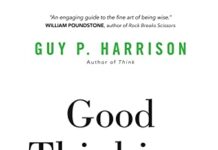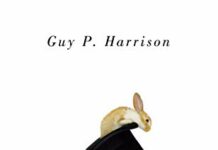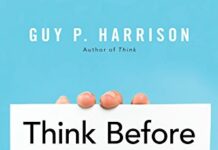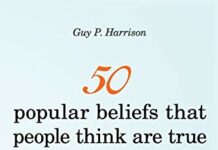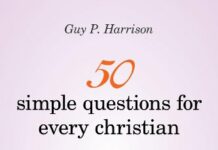
Ebook Info
- Published: 2018
- Number of pages: 384 pages
- Format: PDF
- File Size: 6.20 MB
- Authors: Guy P. Harrison
Description
This primer on essential scientific literacy gives readers the basics to understand themselves and the world around them, plus a glimpse of how much more science has to offer.Science tells us a good deal about who we are, where we come from, the nature of the universe, how our brains work, and much, much more. Unfortunately, most people are largely unaware of this treasure trove of information. As a result, we are more prone to do things like aim nuclear weapons at each other, inflate the meaning of cultural differences, lay waste to the land, poison and deplete the oceans, fill the sky with carbon, and generally make poor judgments that cause needless trouble.This book seeks to remedy this situation by providing scientific answers to the most basic yet important questions about existence. Following the standard six-question list used by journalists researching a news story, critical-thinking advocate Guy P. Harrison turns to science to answer the who, what, why, when, where and how of life on Earth.How old is our planet? Where did it come from and where is it located in the universe? What is everything made of? When did life begin? Who are we as a species and what connections do we share with other life forms? Why is human culture continuously plagued by war, disease, and crime? Harrison not only offers science’s best current answers to these crucial questions but shows how all of this information fits together. Going well beyond the simplistic factoids readily available on any smartphone, he reveals the wider implications and deeper meanings inherent in the scientific worldview.Both entertaining and informative, this exciting tour of the cosmos and human nature will leave readers with an accurate, up-to-date view of realities small and large, near and far.
User’s Reviews
Editorial Reviews: Review “Guy P. Harrison has done it again. With his usual breezy, accessible, and always-readable style, he has crafted a love letter to the human species. In At Least Know This, Harrison applies a journalistic approach to the investigation of who we are and what we know about the universe, the Earth, life, and ourselves, cleverly crafting a multidisciplinary and panoramic scientific discussion in the form of answers to the reporter’s fundamental questions: who, what, when, where, how, and why? As Harrison points out, Homo sapiens is the only species on Earth with the capacity–and even the need–to ask the broad question ‘Who are we?’ At Least Know This engagingly provides the answers to that question as we currently know them.” –Kenneth L. Feder, PhD, archaeologist, Central Connecticut State University, and author, Frauds, Myths, and Mysteries: Science and Pseudoscience in Archaeology “At Least Know This is a monumental, wonderfully wide-ranging, scientifically accurate account of, well, what you should at least know. It’s not only accessible but downright fun and exhilarating to read!” –David P. Barash, Professor of Psychology Emeritus, University of Washington, and author of Through a Glass Brightly: Using Science to See Our Species as We Really Are “In the spirit of other scientists/humanists, such as Jacob Bronowski or Carl Sagan, Harrison thoughtfully delves into life’s greatest questions–who we are, where we come from, why we behave the way we do–and what these imply for our future. These are the questions that continue to inspire wonder in us all.” –Nancy Forbes, coauthor, Faraday, Maxwell, and the Electromagnetic Field: How Two Men Revolutionized Physics “For those who hunger for knowledge about the natural world and universe, this book asks and answers all the right questions. We live in an age of reason but, according to Guy P. Harrison, a surprisingly large number of us wander through life in a deep fog of willful ignorance. It takes curiosity and critical thinking–and science– to clear away the fog.” –David Siegel Bernstein, author, Blockbuster Science: The Real Science in Science Fiction”At Least Know This is the kind of book you hide somewhere and refer to at the appropriate occasion, leading everyone to think you are very smart. ‘Why, yes, let me tell you about the Denisovians. . . .’ It’s a good introduction to biology, evolution, astronomy, genetics, neurology, brain science, and more. Harrison covers the basics of all of these subjects, leaving no room for myth or conspiracy.” –Joel N. Shurkin, author, True Genius: The Life and Work of Richard Garwin, the Most Influential Scientist You’ve Never Heard Of “More than ever our daily decisions depend on a firm understanding of science, but such understanding is slipping away from many of us, it seems. The world is big and complex. How are we to know it all? This book is an entertaining guide to the things you need to know in order to make sensible decisions in the world–about energy, your body, matter, and more. It is full of surprises and sublimity.” –Rob Dunn, biologist and author, Never Out of Season “[Harrison] manages to convey in accessible terms an enormous amount of information about topics ranging from the big bang to the paradoxes of quantum mechanics to human evolution, among other things. But, more importantly, he conveys his personal enjoyment of this knowledge and shows how these things relate to our existence and survival as individuals, as decision-makers, and as a species. His commentaries are well-informed and very up-to-date (he even warns us about social media as an instrument of control), and the range and depth of material covered are a tribute to his infectious intellectual curiosity.” –Paul Braterman, professor and Honorary Senior Research Fellow, University of Glasgow “Bravo! In At Least Know This, Harrison leads a full-frontal attack on ill-conceived, misinformed, cherished beliefs. Not a page turns without the reader learning a new fact or discovering a new perspective. From the macrocosm to the microcosm, he rips the filters off the data and brings reality to the reader. Harrison’s goal? A more sensible world.” –Cathy Cobb, author, Creations of Fire, The Joy of Chemistry, and The Chemistry of Alchemy About the Author Guy P. Harrison is an award-winning journalist and the author of Good Thinking: What You Need to Know to Be Smarter, Safer, Wealthier, and Wiser; Think: Why You Should Question Everything; 50 Simple Questions for Every Christian; 50 Popular Beliefs That People Think Are True; 50 Reasons People Give for Believing in a God; and Race and Reality: What Everyone Should Know about Our Biological Diversity. Excerpt. © Reprinted by permission. All rights reserved. IntroductionHumankind is an impressive and imposing species. We can think and dream at levels far beyond any other life-form on Earth. But for all our gifts, we will never really know ourselves or come close to our intellectual and creative potential so long as most of us continue to suffer critical gaps in fundamental knowledge. How will we make wise decisions regarding complex challenges such as climate change, biodiversity loss, population growth, pollution, viral pandemics, genetic engineering, artificial intelligence, and energy needs when most people do not even know how old the universe and the Earth are, how brains work, and what everything is made out of? For example, at a time when drug-resistant germs are becoming more common, 45 percent of American adults don’t even understand that antibiotics work on some species of bacteria but not on viruses. Among Europeans, 54 percent don’t know this, while 72 percent of Japanese people and 82 percent of Russians don’t. Empowered by the scientific process, humankind has made many difficult and spectacular discoveries. It is tragic that so few people are aware of these achievements and fail to utilize this available knowledge. Imagine how different our world might be if most people were to make consistent use of scientific facts and, more important, scientific thinking to benefit themselves and their societies!The United States is one of the world’s leaders in science education, and yet less than 40 percent of American adults possess the minimal knowledge necessary to read and understand the New York Times science section. One survey found that only about 44 percent of Americans could give a brief correct explanation of what DNA is, and 80 percent did not know what stem cells are. Virtually all physicists, cosmologists, and astronomers know that the universe began about 13.8 billion years ago with the Big Bang, but only 21 percent of the American public are aware of this fundamental fact. A mere 27 percent understand that the Earth is about 4.5 billion years old. All of this matters because evidence-based knowledge impacts, if not determines, the range of our vision, the quality of our thoughts, the success of our actions, and perhaps even our ability to appreciate existence.We are condemned to navigate in darkness when we do not base our most important decisions on the best-available facts and theories. The purpose of this book is to focus readers on simple questions with profound answers. These are the queries that have great relevance to our lives and worldview. Answering them to some degree, from the scientific perspective, can improve the quality, effectiveness, and efficiency of our ideas and actions. This is the necessary knowledge with the power to enhance the lives of individuals and elevate the quality of our societies.My goal is to leave you not only more informed about who you are, where you come from, what is going on around you, and so on, but also feeling differently about yourself, the life you share the Earth with, and the entire universe. We tend to place so much emphasis on immediate and practical uses of knowledge—pass a test, build something, perform a task—that we miss the usefulness and emo-tional power of fundamental knowledge about the reality in which we find ourselves. It is common for scientists and rationalists to warn people about the danger of emotions clouding thought processes and derailing our ability to reason well. I certainly have done this in some of my previous books. But let’s not make the mistake of condemning all emotion all of the time. Learning basic facts and concepts about ourselves and our surroundings can stimulate and inspire. Don’t fight it. Get excited! Let your emotions soar as you read this book. Allow yourself the freedom to find more passion for life in the scientific knowledge presented here. Such awareness can leave us feeling more alive and more awake as human beings. As we will see later, exploring, learning, and imagining are very human traits. They have been with us for a long, long time. Somewhere within you there is a logical scientist and a wild-eyed, emotional dreamer. This book takes aim at both.The chapters ahead do not contain collections of science trivia or fringe facts for fleeting self-amusement. Nothing here is meant to be conversation fodder for impressing friends. This is the important stuff, the foundation from which further learning should grow. The topics covered here are relevant to your existence as a highly intelligent life-form in the twenty-first century. I believe that the information contained in this book has the potential to make anyone’s life richer, fuller, and more exciting. This book is your chance to catch up and fill in some of the gaps that you may have in your understanding of the most important things, events, and processes of all.No one should feel embarrassed about having forgotten or never learned who are our distant ancestors are, when the universe and the Earth were formed, how atoms work, why microbes matter, and so on. While striving to make good grades, land a job, achieve social acceptance, and find a mate, many smart and hardworking people rush right by this fundamental knowledge. Ignorance on these matters does not necessarily have anything to do with intelligence or work ethic. Let’s not waste time blaming ourselves, our parents, our schools, or society in general for things we do not know. Let’s get busy learning instead. I hope you enjoy exploring the essential science within this book. May it inspire and enhance your life.Guy P. HarrisonNowEarth, Milky Way, Universe Read more
Reviews from Amazon users which were colected at the time this book was published on the website:
⭐At Least Know This: Essential Science to Enhance Your Life by Guy P. Harrison“At Least Know This” is an excellent book that informs you of who and where you come from a scientific perspective, the essential science to know! One of my favorite authors, anthropologist and critical thinker Guy P. Harrison takes the reader on a journey of essential knowledge. This informative 384-page book includes the following ten chapters: 1. The Who, What, Why, When, Where, and How of Everything, 2. Who Are We?, 3. When Did Everything Begin?, 4. What Is Everything Made Of?, 5. What Is Life?, 6: How Did We Get Here?, 7. Why Does Human Biological Diversity Confuse Us?, 8: How Do Brains Work, 9. Where Are We?, and 10. How Will Everything End?Positives:1. Loved this book! The master of clarity and good thinking is back and better than ever. Well-researched and well-written book that is fun to read.2. An excellent topic, the essential science to know. This book exemplifies the treasure that is knowledge. This is an ambitious book that covers so many topics from the beginning of our universe to who we are now and the future.3. Excellent use of visual and supplementary materials. Timelines, highlights of key topics, photos, and charts all included complementing the excellent narrative. I love how the information is conveyed that this book will assuredly be a reference book for years to come. The section on Our Crowded Genus as case and point.4. Mr. Harrison has the gift of an educator and the curiosity of a scientist. He treats his topics with the utmost of care and respect and he does so with the joy of a child in awe of the universe.5. The excellent introduction sets the tone for this wonderful book. “The purpose of this book is to focus readers on simple questions with profound answers. These are the queries that have great relevance to our lives and worldview.”6. The book is full of wisdom. “Knowledge adds value to our humanity.”7. Does a great job of describing all the key topics introduced. In explaining science, “Critical thinking and the wise application of knowledge enable us to reach beyond the limits of instinct and transcend many of our evolutionary obstacles.”8. Provocative questions with satisfying answers. So who are we? “The current conclusion, based on overwhelming anatomical, fossil, and genetic evidence, is that we are very closely related to modern great apes, chimpanzees most of all. We share a common ancestor with modern chimps, and this ancestor lived millions of years ago. It was widely thought that the human line split with the chimp line about 6 million years ago in Africa.”9. Practical advice backed be the best of current science. “It’s difficult to overstate the importance of this. Vigorous and consistent physical activity stimulates the growth of new neurons in the human brain throughout life.”10. Excellent explanation of the big bang theory. “The Big Bang does not mark the actual beginning of the universe. Most people seem to miss this, but the theory describes what happened from a small fraction of a second after the expansion began and onward.”11. Quantum mechanics for the layperson. Excellent decision to make this chapter short and get to the essence of it. “This chapter, more than any other, shows that the universe does not conform to human expectations or intuitions—not even close. The very nature of reality, and virtually everything we think we know about it, seems to go out the window once we take a close look at atoms. quantum mechanics or quantum theory, the science of atoms and subatomic particles, shows us the awesome power of science.”12. An awesome chapter on life. “The critical component within this change, the thing that makes evolution so productive and creative, is that there is descent with modification, heritable change in populations across generations. Evolution happens when certain traits prove useful enough in the present environment that they may be favored, or selected, passed on to offspring at a higher rate due to their survival/reproductive value.”13. The explanatory power of evolution. Provides the six misconceptions about evolution that should be extinct.14. An excellent section on inequality. “One of his books, The Great Leveler: Violence and the History of Inequality from the Stone Age to the Twenty-First Century, details some of the problems that were created by the transition from hunter-gatherer societies to agricultural societies and how they continue to harm us in many ways today.”15. Did I mention that this book provides excellent supplementary material? I did, but it’s worth repeating provides an excellent What Have We Done? A Human Timeline.16. Such an important chapter on human biological diversity treated with the utmost care and respect. “In fact, many geneticists are outspoken about the need to abandon race as a means of analyzing and describing Homo sapiens. They warn that it is not only socially harmful but also scientifically wrong.”17. Throughout the book makes great use of expert references. “Human memories are constructed and routinely reconstructed, Loftus explains: “Memory works a little bit like a Wikipedia page. You can go in there and change it—but so can other people…. We can’t reliably distinguish true memories from false memories. We need independent corroboration.”18. A tour of our immediate neighborhood, astronomy. “Thanks to the Cassini space probe’s remarkable work, for example, Enceladus, another one of Saturn’s moons, is now thought to have a warm ocean with enough heat activity from thermal vents to possibly support life.”19. So what are the odds that Homo sapiens make it to 2100? Find out.20. Links to copious references and an excellent bibliography. And much more…Negatives:1. More an observation than a negative, since I consider this book worthy of a future reference the hardcopy version will be better than the kindle version because of formatting.2. No mention of ice cores with regards to explaining how we know about past climate and even an easy debunk of young earthers.In summary, this is the book I wished I had written! This book exemplifies my joy of reading; Mr. Harrison successfully captures the essence of science that indeed can enhance your life. It doesn’t matter that I’m familiar with a lot of the information presented here I always learn something new and inspirational that can and will help enhance my life. The book is so helpful in the information conveyed and how it’s conveyed that it will be a fun reference book for years to come. A fun way to learn about science and your life, I can’t recommend this enough!Further suggestions: “Think Before You Like”, “Think”, “50 Reasons People Give for Believing in a God” and “50 Popular Beliefs That people Think Are True” by the same author, “The End” by Phil Torres, “The Age of Everything” by Mathew Hedman, “The Believing Brain…” and “Why People Believe Weird Things” by Michael Shermer, “Why Evolution Is True” by Jerry A. Coyne, “Wonders Life” by Brian Cox, “Last Ape Standing” by Chip Walter, “Catastrophes” by Donald R. Prothero, “Science Matters” by Hazen and Trefil, “The Blind Spot” by William Byers, “The Rocks Don’t Lie” by David R. Montgomery, “Spectrums” by David Blatner, “The Sixth Extinction” by Elizabeth Kolbert, “This Changes Everything” by Naomi Klein, and “The Price of Inequality” by Joseph Stiglitz.
⭐While most of the information I already knew coming into this book, it is always refreshing to have the same information presented in new and refreshing ways. Guy is a great author and I have almost every single one of his books in my library. This new gem should be required reading for everyone, and IMO, absolutely included in the high school curriculum everywhere. One easily knows why this will never happen, but it’s still wishful thinking on my part. I encourage anyone who wants to see the world and universe as it really is, and how much humanity has learned about the two, including our discoveries about life and ourselves, to read it. I purchased this book as a gift for my girlfriend’s son who recently went off to college. I am not sure he is at the point of reading outside of curriculum requirements, but I hope that one day he will decide to pick it up and discover the amazing wealth of knowledge it contains. Someone gave me a book long ago of a similar nature, and I have become an avid non-fiction science reader ever since, and I cannot thank them enough. Fingers crossed maybe one day he might do the same. His generation will soon become the stewards of our planet; I think it’s important to have the knowledge in hand to properly accept that responsibility.
⭐A lot of information about a lot of subjects. Enough science to be interesting and not boring. Highly recommend.
⭐Good book enjoyed reading
⭐This is essential reading for understanding our place in the universe and most importantly, our responsibilities as the dominant species on earth. More of a book for the masses than scientists, it can impact how we survive this century.
⭐You can’t go wrong with a book by Guy. He only writes necessary stuff.
⭐It is a great book, very interesting and informative.
⭐At Least Know This: Essential Science to Enhance Your Life is an intriguing title that prompted me to order it from Amazon. Our author is Guy P. Harrison, who is a journalist who writes books about science, religion, and logical reasoning and thought. Right up front Guy tells us that: “To make the most out of the information contained within this book it will be necessary for readers to repeatedly assess how and where they fit into their world.”I took Guy’s advice and stopped frequently as I read the facts and ideas he presented to determine first their truth value and second what meaning these facts and ideas had for me and how I might use this information. Remember, the title of the book is At Least Know This. Guy presents us with lots of facts he thinks are important for us to know. For example, he tells us that our Universe is 13.8 billion years old and the earth is 4.5 billion years old. He makes the point that as Joni Mitchell tells us in her song Woodstock, we are stardust and we as homo sapiens, human beings, come at the tail end of an incredibly long history of the earth. 99% of all species on earth have become extinct and our closest relatives, the Neanderthals, died out forty thousand years ago. Guy suggests that the facts tell us that if we do not act prudently and reasonably, we may well go the way of the Neanderthals. On just the issue of Global Warming, Guy acts wisely and prudently to advise all of us to be responsible and not pollute our beautiful earth.Guy loves science and everything about it; that said, he offers us a cautious word of advice. Even with the most precise and exacting science, few things are absolutely certain. Certain facts like the speed of light, 186,282 miles per second are difficult to come by and we as consumers of scientific facts and information must always question the certainty of what we are told. Global warming is a great case in point. The great majority of scientists agree that people are the cause of global warming, but holdouts exist and my guess is that readers of this review may have had arguments with friends and family about the truth of global warming and what we should do about it. Guy recommends that we get the facts and then act accordingly, always with good reason and judgment.In his chapter titled Who Are We? he tells us that “A majority… of the microbes we live and die with are unknown to science today.” A few years ago I reviewed for Amazon Dr. Robynne Chutkan’s book The Microbiome Solution with hopes that I might improve my digestion. Guy Harrison includes in his book some of the information Dr. Chutkan shares with us and my guess is that many readers of this review are aware of probiotics and their importance for our health and well-being. The whole purpose of Guy’s book is to first make us aware of information that is vital to our health and well-being, but second to be sure we evaluate carefully even the information we get from reputable doctors like Dr. Chutkan.Guy Harrison is a walker, that is, he makes sure he gets up from his sedentary and unhealthy work sitting at a computer and goes out for a walk or a jog. He lives in beautiful San Diego – lucky him – so the weather is often agreeable. Those of us who live in New England are more challenged with our weather, but Guy won’t allow us to use the weather as an excuse. The facts are clear; the sedentary life is a killer. The entire history of the human race, he points out, until most recently, has had people on the move as hunter gatherers. We must remember this and like our ancestors, move, and move frequently. I am smiling as I write this because, like Guy, I spend too much time writing on this computer and not enough time out of doors walking and being a part of nature. “There lives the dearest freshness deep down things” in nature and for our health and well-being, Guy suggests that we explore the natural wonders that surround us.At Least Know This is a book of facts and figures; Guy Harrison tells his story of the human race reasonably well. From time to time I did feel he went a bit overboard and stayed too long with this or that group of facts, but by and large I did as he suggested and stopped to consider what information was essential for me to live a healthier and more productive life. Readers, I am going outside when I finish this review and give the birds some fresh water in the bird bath and then take a walk. I am promising myself to sit less and walk more. But what about all of you reading this review? Perhaps you will buy Guy’s book and find some information you can relate to your life to help you become healthier, more productive, and achieving. That is his purpose and to some extent I think he has succeeded.
⭐Great content, but hard to read. Thick book, tiny font. Beware if you need glasses! I don’t and even I struggled.
⭐This is one of Guy`s most comprehensive looks at the Earth and the Universe that we reside in. However, this is not just a content book. It is a stimulating and entertaining book that allows us to fill in our missing knowledge that we desperately need to overcome our scientific illiteracy. Brian Cox has stated that the end of our society could prematurely occur if we are not adept at critical thinking while also teaching ourselves scientific facts that immerse our brains into skeptical cognitive thought. Guy P. Harrison has created the perfect medium for extracting the expertise we need to prevent illiteracy. Guy`s book provides us with much of the educational familiarity needed in order to analyze our existence. He provides us with a factual background of biology, cosmology, culture and the questionable definition of race through biodiversity. Learn about the end of the universe, and our major bodily organs from the brain to the heart. We constantly evaluate knowledge with many forms of bias which lead us to false conclusions and unrealistic strategies. Guy`s book is a step towards enhancing your knowledge and stripping yourself of the biases, outlined in the chapters. You will definitely read this more than once, so get a copy.
Keywords
Free Download At Least Know This: Essential Science to Enhance Your Life in PDF format
At Least Know This: Essential Science to Enhance Your Life PDF Free Download
Download At Least Know This: Essential Science to Enhance Your Life 2018 PDF Free
At Least Know This: Essential Science to Enhance Your Life 2018 PDF Free Download
Download At Least Know This: Essential Science to Enhance Your Life PDF
Free Download Ebook At Least Know This: Essential Science to Enhance Your Life
